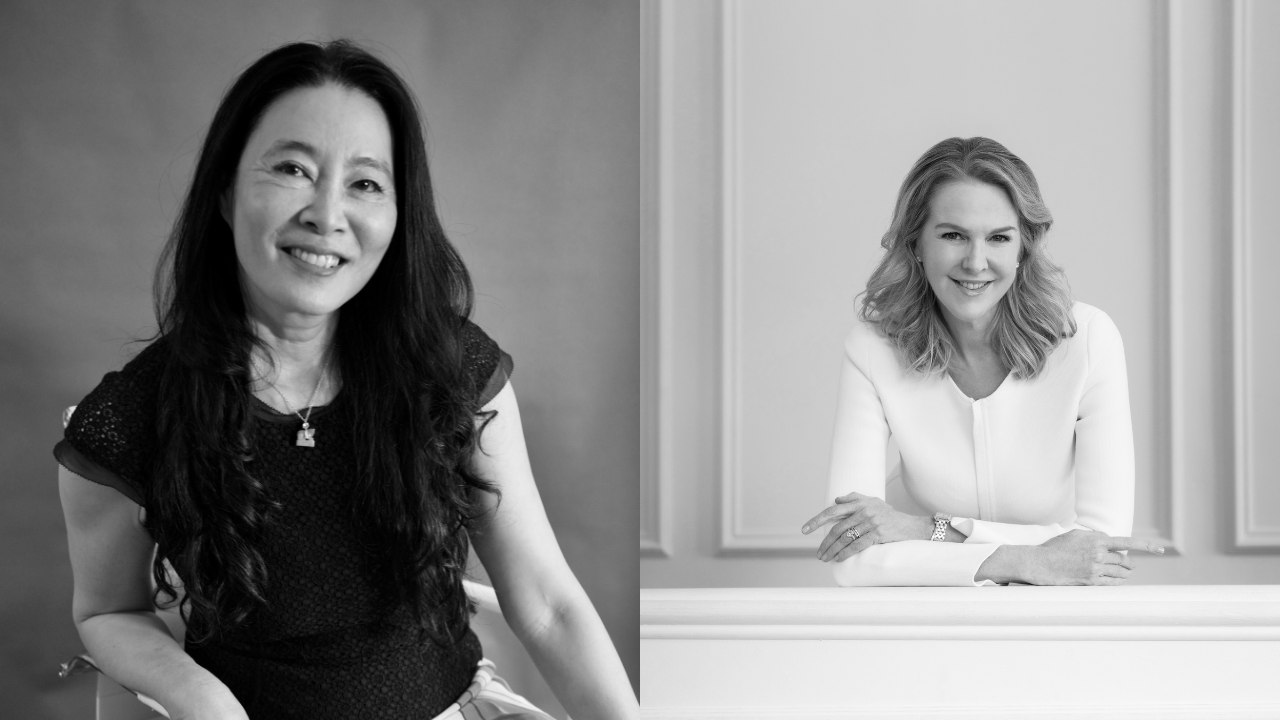Our Community: NINEBy9
What will it take to achieve gender parity in Asia? This is the question NINEby9 is asking as part of its multi-year initiative, launched in Singapore in 2021. Grounded in an annual research study, the non-profit organisation is a call to action to business and society to make the needed changes to positively impact the future for our daughters and sons, focusing on emerging future leaders with expectations of gender equality.
As a female-led company ourselves, Accela Group is passionate about the cause and we’re honoured to support NINEby9 in our Communications division on a pro bono basis to help raise awareness around NINEby9’s mission. With the launch of NINEby9’s first annual report on gender parity in Asia this week, we’re sharing insights from Co-Founders April Swando Hu who is Founder of the Swando Company and Director of the Zigen Fund, and Christine Fellowes who is Managing Director of NBC Universal Int'l Networks APC & IMD, USA, on what NINEby9 is hoping to achieve and how.
NINEby9 Co-Founders, April Swando Hu and Christine Fellowes
What spurred you to start NINEby9?
Christine shares, "I forged a career as a corporate leader while raising three children at a time where there was little acknowledgement in the workplace of the challenges of family and societal demands on women. In co-founding NINEby9 I aspire to a vision that my daughters and son enter a workforce which offers equal opportunity, regardless of gender."
April adds, “As a reset year sparked by life experiences and world events, I co-founded NINEby9 in 2020 to cascade strategic action for gender parity for sweet-spot working women in Asia. I believe that women in management is good business and Eastern and Western balance is even better business."
What is the meaning behind the name, NINEby9?
NINEby9 refers to our framework of nine actions to be done over the next nine years to drive gender parity within organisations across Asia. Nine years is to acknowledge the United Nations SDG Goal #5 for gender parity by 2030 which is nine years from now. In our questionnaire we define gender parity as having equal professional opportunities and equal treatment as a working individual regardless of gender identity.
What is your vision for NINEby9?
Our unique research will lead to action plans that can be implemented by individuals and organisations, and guide the localisation of gender parity policy and practices for companies in Asia.
While achieving gender parity can be a daunting task to take on, we believe we can achieve our mission by using our research to develop an actionable framework to guide individuals, managers and companies to create a positive impact and sustainable change toward gender equality in this region.
Tell us more about the research study, how and where was this conducted?
We’re spearheading best-in-class academic research, with consulting support from research experts from Yale-NUS and DEI experts. The proprietary regional research has been conducted by award winning market research agency Kadence International.
We used translated questionnaires for China, Hong Kong, Indonesia and Japan, and English for Singapore and Hong Kong. There were 3,000 online questionnaires, 500 per country. In the larger countries, we chose two representative cities of commerce and IT. For instance, in China: Shanghai and Shenzhen, and in India: Mumbai and Bengaluru.
The online questionnaire takes around 20 minutes and was offered to an anonymous group. The questionnaire categories are as follows:
Contextual attitudes – 6 questions
Stories – Has someone actively gone above and beyond to help you as an individual with regards to gender equality? If not, then an organization?
Gender Parity statements
Gender Parity Drivers – 15 questions x 4 = 90
Profiling – 14 questions
Can you tell us a bit about your roles with NINEby9?
April works closely with established academic institutions and professional research groups to design, conduct, and analyse robust research across key areas in Asia. She is the data expert and the key contact developing our research with academic institutions (Yale-NUS and Prof Koh from NTU) as well as the research firm, Kadence International. Christine leads the excomm and is responsible for stakeholder engagement as well as corporate outreach for NINEby9.
The team also includes an illustrious group who were brought together through our shared vision. The board of advisors, advisory council, executive committee and teams involved in NINEby9 represent a diverse collective of cross industry specialists, united by a passion to make a difference and their shared commitment to taking action to achieve social impact. Everyone involved is a volunteer and participation is on a pro bono basis.
You’ve released your inaugural report this week, what are the nine truths you’ve uncovered about gender equality in Asia?
Women in Asia believe they have equality in pay and opportunity, even though they do not.
Only 1 in 5 women have a positive gender parity story to share. But it is a very mixed picture across the region.
76% of women said they did not see driving gender equality in the workplace as their problem.
Women are still unsure of how to speak up for their rights and are concerned about repercussions.
Yet, the appetite for growth is bigger than we think, with 55% of women saying growth is their top career goal.
Women returning to the workforce after starting a family are twice as likely to prioritise organisational growth over personal growth
While there are some similarities, women’s aspirations and challenges differ considerably across geographies.
Bosses who actively support gender parity foster greater loyalty for the company amongst their direct reports.
Unconscious bias remains our biggest hurdle.
What are the actions that need to happen to drive towards gender parity by 2030?
When we read the stories women shared, we started to see the stakeholders as drivers of real change emerge clearly. There was a boss that stood up for you, there was your company that made it possible for you to feel equal through their policies and finally there was you, the individual woman who spoke up, took action and found role models.
These stakeholders are ranked below by importance based on the respondents:
Managers standing up for the women who work for them by:
Reinforcing a culture of equality, demonstrating that the company policies are not just on paper, that all members of the team are truly equal.
Recognising contribution, enhancing the confidence of those that have competence in their team through regular feedback that reinforces their effort and impact.
Ensuring work-life balance, recognising that women may traditionally carry a heavier caregiver load and may struggle to speak up because they do not want to be treated differently or have negative consequences.
Organisations who make it possible for women to feel equal by:
Demonstrating visible proof, showing all employees that they have equal opportunity for growth.
Creating specific policies to support and champion women, recognising that women may have physical needs that are different and finding ways to support these needs so women feel comfortable in the workplace.
Encouraging allies to demonstrate that gender parity matters to them, that they recognise the world is unequal and that the company will be better with equality.
Women who speak up and take action by:
Creating personal beliefs that gender does not dictate the industries women can work in or chances to succeed in these industries.
Seeking role models within and outside their organisation.
Raising important topics related to promotions, work-life balance, health needs, sexism in the workplace to ensure people know the extent to which these challenges exist.
Where can people learn more about NINEby9, and get involved in this important cause?
Please visit our website, where you can learn more about the organisation and also access our full report. We are also on Instagram and LinkedIn, if you’d like to connect there.


